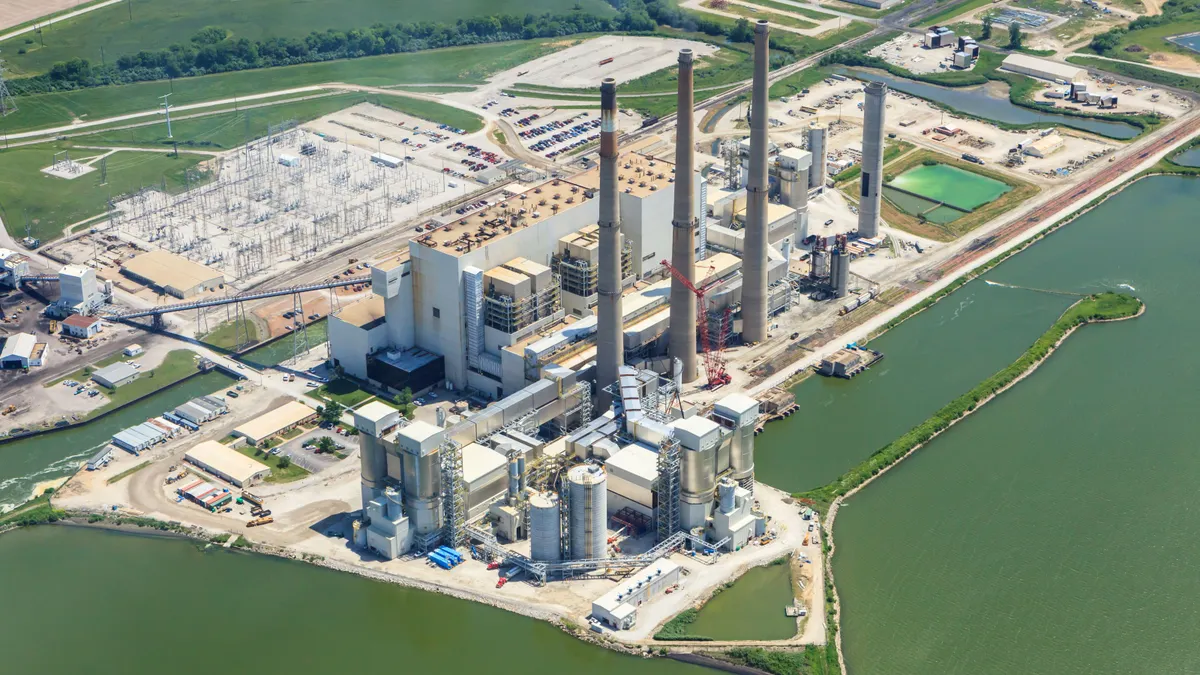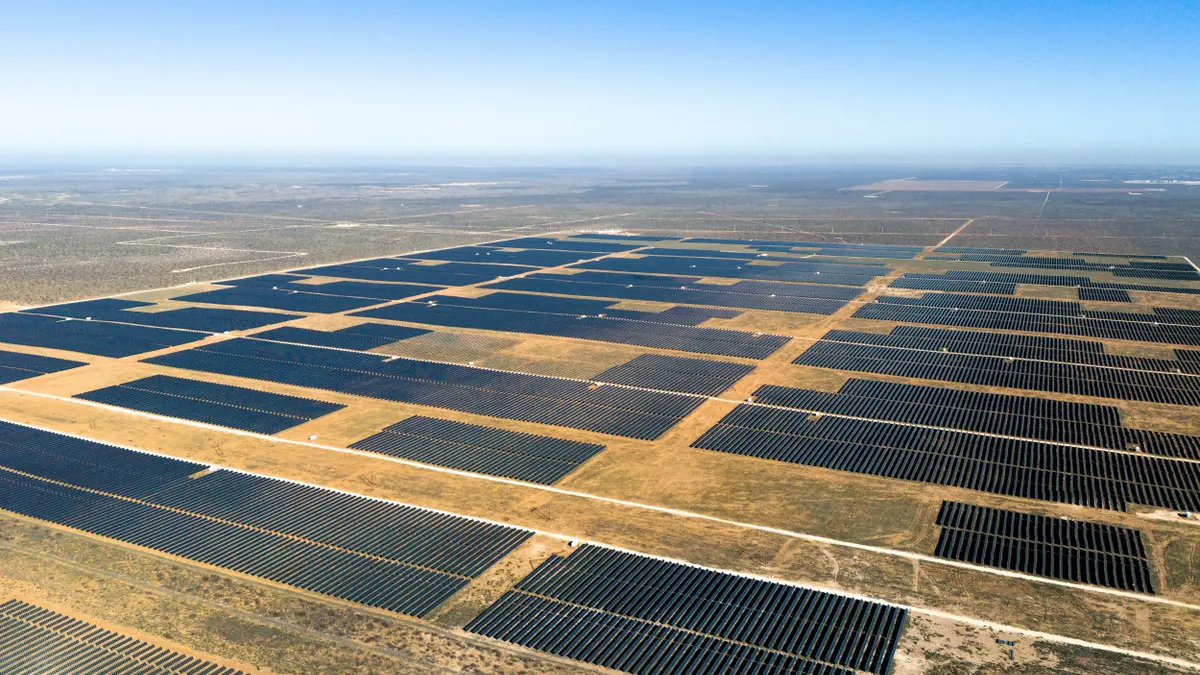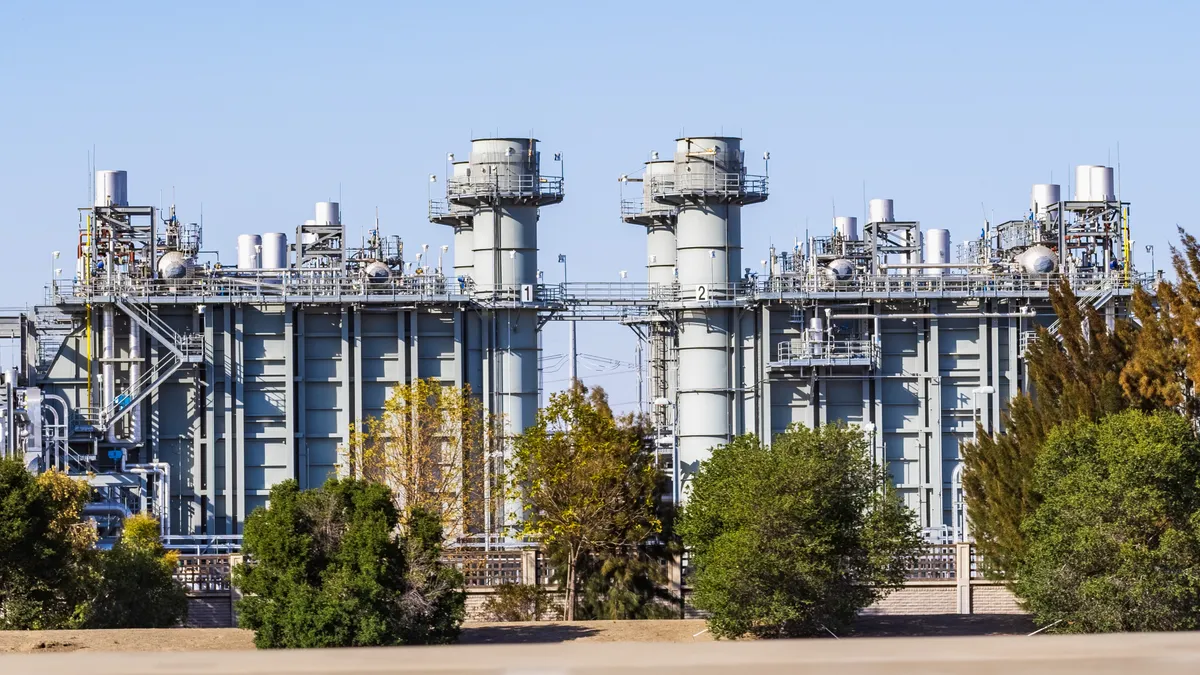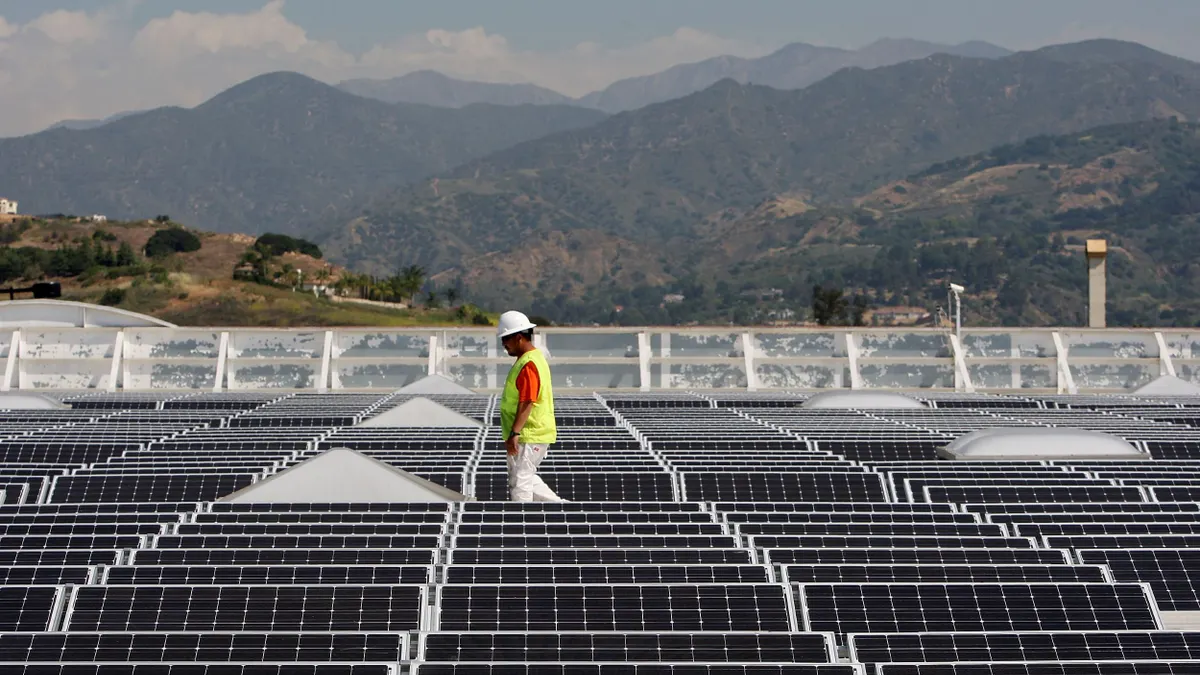The year-ending struggle to get wind subsidies extended in Congress may by now seem almost routine, but with the GOP regaining control of the Senate last week, this year's bout could be more critical than ever for the industry.
As usual, wind builders say they face ruin if Congress doesn’t extend their vital production tax credit (PTC) in the upcoming lame duck session. But, this year there is a chance Congress could ruin the PTC and extend it at the same time.
First, the good news for wind advocates: D.C. insiders say the most likely scenario is the PTC will be extended at year's end, as it was in 2012 and 2013.
“It has strong support on both sides of the aisle and, more importantly, from Midwestern Republicans,” explained Bracewell & Giuliani Senior Counsel Curt Beaulieu, a former Senate Finance Committee tax counsel. The PTC is part of a tax package that came from that committee.
The PTC and over 50 other tax credits in the Expiring Provisions Improvement Reform and Efficiency (EXPIRE) Act are likely to be extended for 2 years, and a handful will be made permanent, in a compromise that will be worked out by the current House and Senate leadership, Beaulieu said.
“The House will go along in return for permanent extension of a few selected items it especially favors,” said Capitol Tax Partners’ Joseph Mikrut, a former Treasury Department Counsel. "If negotiations break down, the fall back would be a 1-year extension. I don’t see it being postponed until 2015. I think we will see something in the lame duck session.”
The year-end Congressional session, which allows lame duck candidates voted out of office in the November election to cast their final votes, typically dispenses with vital spending and tax laws and allows new members a fresh start in January.
“I would put the odds of the PTC’s passage at more likely than not,” said Berkshire Hathaway Energy Legislative & Regulatory Affairs VP Jonathan Weisgall. “But it is not a given. We have seen party leaders send out conciliatory messages but it is not yet clear what the level of comity between them will be.”
“The big question is whether the Republicans will take on anything beyond authorizing government spending,” said Chadbourne and Parke Partner Keith Martin. “If they do, there is a good chance there will be a deal.” If they take up the EXPIRE Act, Martin said, the lawmakers will have decided to clean their 2015 slate, eliminate IRS concerns, and demonstrate they can legislate.
What the PTC is
The $0.023 per kilowatt-hour tax credit was instituted in 1992 to support the budding wind industry. It is a performance-based incentive earned for a wind project’s first 10 years of production if the project is in construction by the end of the applicable year.
When the tax credit's renewal was delayed, in 1999, 2001, 2003, and 2012, wind industry growth fell sharply the following year because developers require lead time to arrange for financing and plan construction.
In conjunction with 2009’s Recovery Act, Congress extended the PTC for 3 years. The resulting period of planning certainty allowed for 3 years of interrupted growth. Policymakers wanted to provide similar stability in the 2012-13 one-year renewal. By the time that legislation was approved, 2013 was already a lost year for the wind industry, but the bill’s “start construction” language set up a 2014-15 boom that is expected to be the industry’s biggest ever.
Iowa Republican Senator Chuck Grassley and former Iowa Democratic Senator Tom Harkin have championed the measure, with Harkin's behind-the-scenes work convincing the Senate Finance Committee to add the start construction language. It provides developers with more certainty by guaranteeing them the tax credit if construction is started by the end of the applicable year and the project is in production by the end of the following year.
A tenuous peace ahead of negotiations
“There will be a bipartisan effort to prevent American businesses from having to face another year of uncertainty about tax credits,” said wind developer Jacob Susman, CEO of OwnEnergy. “The only thing the election changed is the likelihood of a confrontation. Republicans have to demonstrate they can get things done.”
“The PTC is high priority for both the White House and the Senate and I don’t see them moving forward with the tax extenders package, which is important to a lot of members for a variety of reasons, unless the PTC is extended for two years,” agreed former DOE official and Iberdrola Renewables Government Affairs VP Richard Glick.
While Senators Reid and McConnell and Speaker Boehner negotiate privately during the December session, Beaulieu said, it would not be surprising to hear House Republicans calling for the elimination of the PTC and Democrats responding with calls to dispense with the House’s proposed permanent extensions.
That would just be negotiating tactics, Weisgall said.
A first sign of this negotiating process emerged recently when a letter from the conservative, Koch brothers-funded American Energy Alliance warned newly elected Republicans that blocking the PTC “is a meaningful way for this Congress to oppose the President’s climate plan.”
The letter “is out of sync with the bipartisan support Republicans, Democrats and independents and the vast majority of Americans all have” for wind,” American Wind Energy Association VP Peter Kelley responded.
A greater threat to lame duck negotiations might be an early effort from McConnell to block the EPA's Clean Power Plan or a proposal from Harry Reid to add "start construction" language to solar’s investment tax credit (ITC), a major want item on that industry's legislative wish list.
“That would create push-back and could threaten the deal,” Beaulieu said.
How the PTC could be ruined
What makes an extenders package possible, Weisgall explained, is that it requires only a date change and no policy changes. “Nobody is writing tax law,” he said. “It is exceptional to add anything like policy to an extenders package.”
If there is push-back, Beaulieu said, it could be in the form of a proposal to eliminate the start construction language. “Many of the tax writing staff understand and have concerns about how the PTC start construction provision is applied,” he explained. “That would really be pulling the rug out from beneath the wind industry.”
Because it could be a deal breaker, Weisgall doesn't think that will happen. “PTC proponents would argue against it persuasively," he said. "Very prominent Republicans, including Senators McConnell, Hatch, and Murkowski, have said they want to see tax extenders done.”
Beyond the lame duck session
Beyond the PTC extension in the lame duck session is a bigger discussion “about a renewable energy tax credit that is more enduring than the ones for individual renewables,” Susman said.
“If this Congress does what it needs to do on the EXPIRE Act, it will set the industry on a firm footing to install several thousand megawatts per year in 2015, 2016, and 2017," Susman explained. “That feels like a good amount of runway for us as a country to figure out what the long-term stable policy framework for renewable energy should be.”
Wind’s readiness to compete is why GE Energy, the biggest U.S. turbine manufacturer, supports “a measured phase-out of the PTC,” according to GE Energy Policy Director David Malkin. Negotiations for a 3-year to 5-year phase-out should begin after the PTC is extended through 2015, he recently said.
A phase-out, if implemented, would likely apply only to new projects. The most plausible changes would be either a gradual reduction of the 10 year term or a gradual cut in the $0.023 per kilowatt-hour credit, Beaulieu said.
The wind industry could be willing to discuss something like a phase-out “during the next Congress, with all parties that receive energy incentives through the tax code coming to the table to offer something up,” Susman said.
“It would have to be on the table if there is talk of a long-term PTC extension in a larger tax reform discussion,” Weisgall said.
“Everyone says they want tax reform,” Beaulieu said. But timing is a problem. First, tax reform details are extremely challenging. Second, Republicans running in the next election might not want to make the tough votes reform will require. Finally, the 2016 presidential race begins in just a few months and candidates like tax reform as a campaign issue.
“There is a chance for tax reform,” Beaulieu added. “It is possible but not probable. It depends on what happens in the first 3 months of next year.”






















